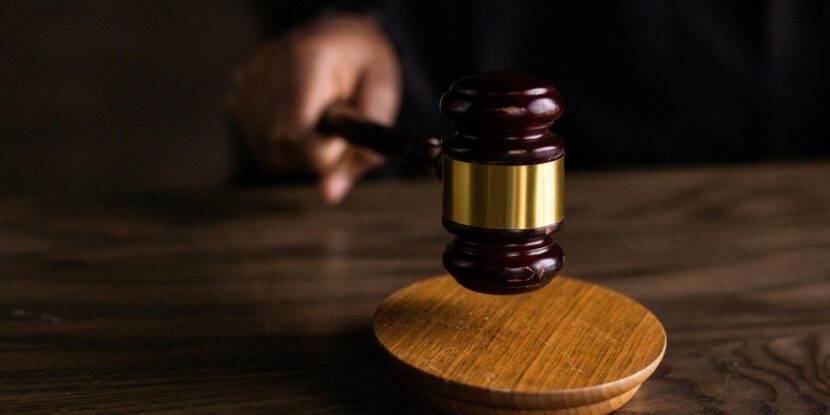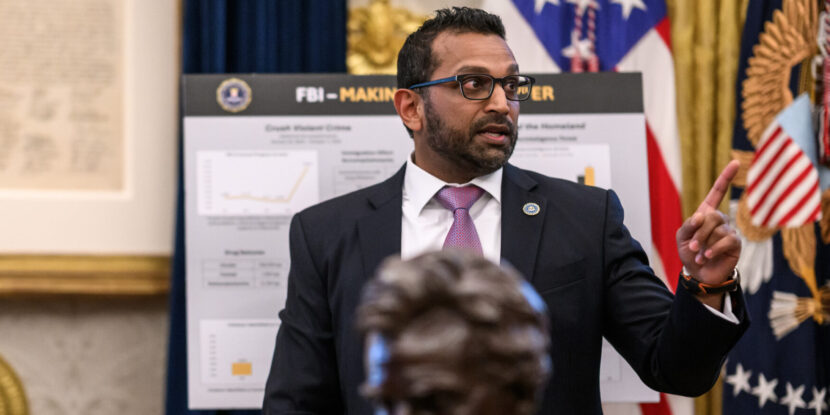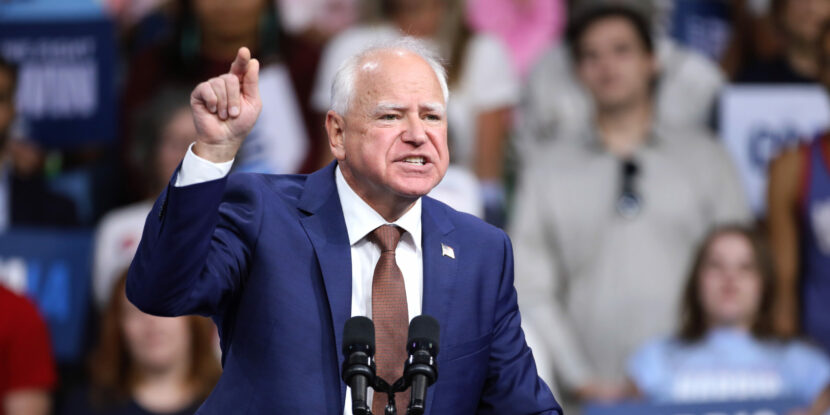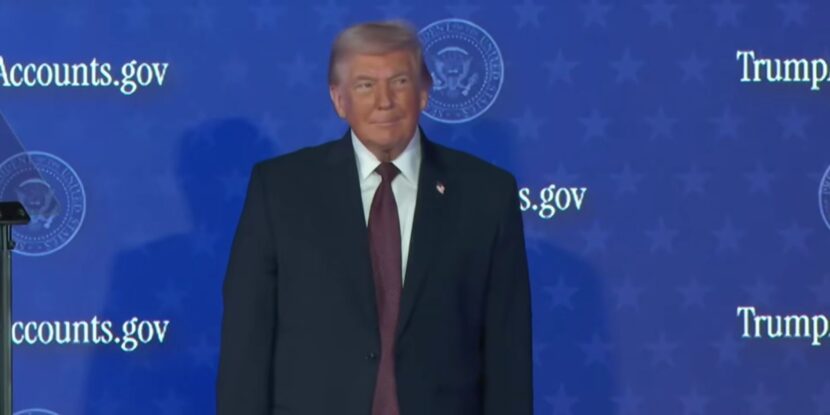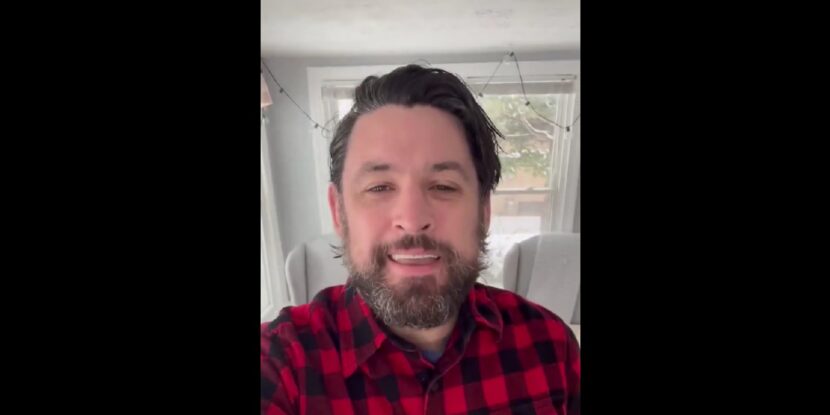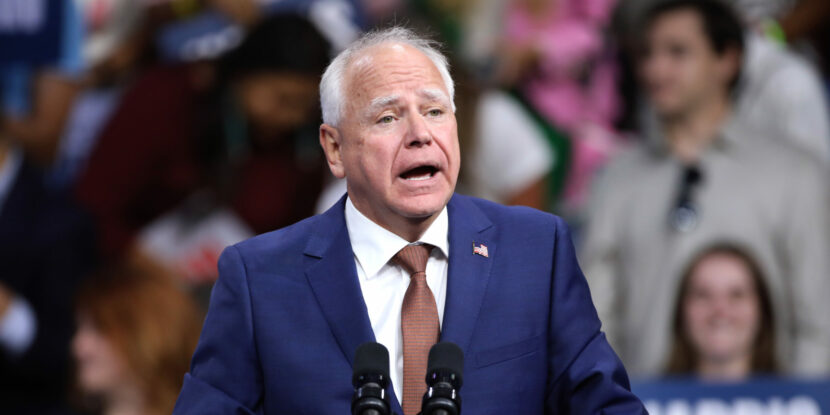PULSE POINTS
❓WHAT HAPPENED: President Donald J. Trump and his top economic and social policy officials rolled out the administration’s groundbreaking Trump Accounts during a major summit at the Andrew W. Mellon Auditorium in the heart of Washington, D.C.
Your free, daily feed from The National Pulse.
Thank You!
You are now subscribed to our newsletter.
👤WHO WAS INVOLVED: President Trump, Treasury Secretary Scott Bessent, Kevin O’Leary, Altimeter Capital CEO Brad Gerstner, several hundred attendees, and music industry superstar Nicki Minaj.
📍WHEN & WHERE: Wednesday, January 28, 2026, at the Andrew W. Mellon Auditorium in Washington, D.C.
💬KEY QUOTE: “Perhaps no other provision of the Great Big Beautiful Bill will prove more consequential than Trump Accounts.” — President Trump
🎯IMPACT: A Trump Account opened with $1,000 in federal seed money in 2026 will reach $5,800 by age 18 and $18,100 by age 28. However, families who contribute the maximum $5,000 annually will see the accounts reach an estimated $303,800 by age 18 and $1,091,900 by age 28—assuming contributions continue through age 18 and the account is converted to an IRA.
President Donald J. Trump and his top economic and social policy officials rolled out the administration’s groundbreaking Trump Accounts on Wednesday during a major summit at the Andrew W. Mellon Auditorium in the heart of Washington, D.C. The event was opened by Treasury Secretary Scott Bessent, who stressed that the new investment accounts are a “down payment on the American dream” aimed at “creating an ownership economy.”
According to Secretary Bessent, “Trump Accounts are not a government program. They are a radically new platform that returns us to a social contract anchored in individual ownership where everyone starts life on an investing journey.”
Under the One Big Beautiful Bill Act, signed into law by President Trump last July, American newborns are eligible to receive $1,000 from the U.S. government starting July 4, 2026, through 2028. The seed money will be deposited into what the White House states is “a 530A account, a tax‑advantaged investment account for children under 18 that works similarly to a traditional IRA.”
“Perhaps no other provision of the Great Big Beautiful Bill will prove more consequential than Trump Accounts,” President Trump said on Wednesday, emphasizing that in the most likely cases, the accounts could grow to $200,000 or even $300,000 or more for each child. He added, “We had a great start to our economy, but this is blowing it away. We’re going to leave every child with real assets and a shot at real financial freedom.”
Notably, each account is established in the child’s name—though a parent or guardian will act as a custodian until the child reaches 18.
In essence, the accounts resemble a hybrid retirement account, but upon the age of 18, the account owner will be able to either continue investing into it or, at any point, use the money to attain key aspects of the American dream, like paying for college or as a down payment on a first home.
One of the fundamental advantages of the Trump Accounts is the power of compounding interest and the ability for employers and other institutions to make contributions to the accounts.
Kevin O’Leary, an investor and television personality, noted at the summit that the accounts allow employers to invest not just in their workers but also in their workers’ families.
Importantly, according to the White House, a Trump Account opened with only the $1,000 federal seed money in 2026 will reach $5,800 by age 18 and $18,100 by age 28.
However, families who contribute the maximum $5,000 annually will see the accounts reach an estimated $303,800 by age 18 and $1,091,900 by age 28—assuming contributions continue through age 18 and the account is converted to an IRA.
CEO of Altimeter Capital, Brad Gerstner, stressed that “We’re going to make every citizen a shareholder,” and that the accounts are an “antidote to socialism,” and counter to calls for the implementation of a Universal Basic Income (UBI).
Already a number of major U.S. corporations have pledged to contribute seed money to Trump Accounts for the children of their employees. Bank of America, JPMorgan Chase, and Steak n Shake have each pledged a $1,000 match for accounts belonging to the children of their employees born between 2025 and 2028.
Meanwhile, music industry mogul Nicki Minaj says she will contribute several hundred thousand dollars to create $1,000 matches for Trump Accounts belonging to the children of a portion of her fans.
Join Pulse+ to comment below, and receive exclusive e-mail analyses.





